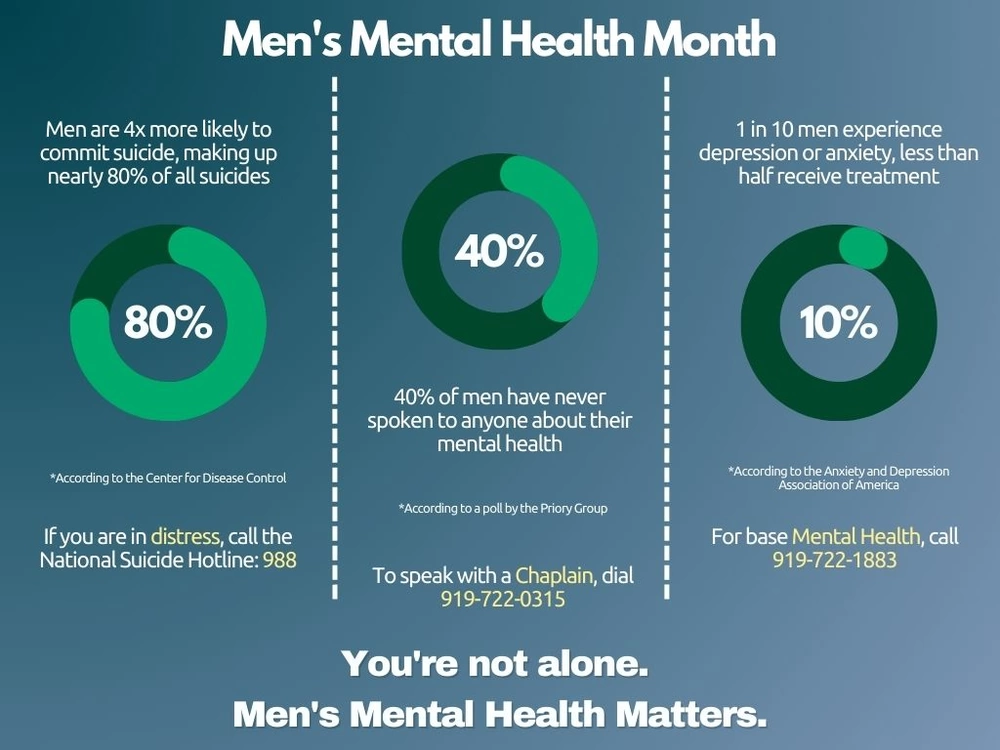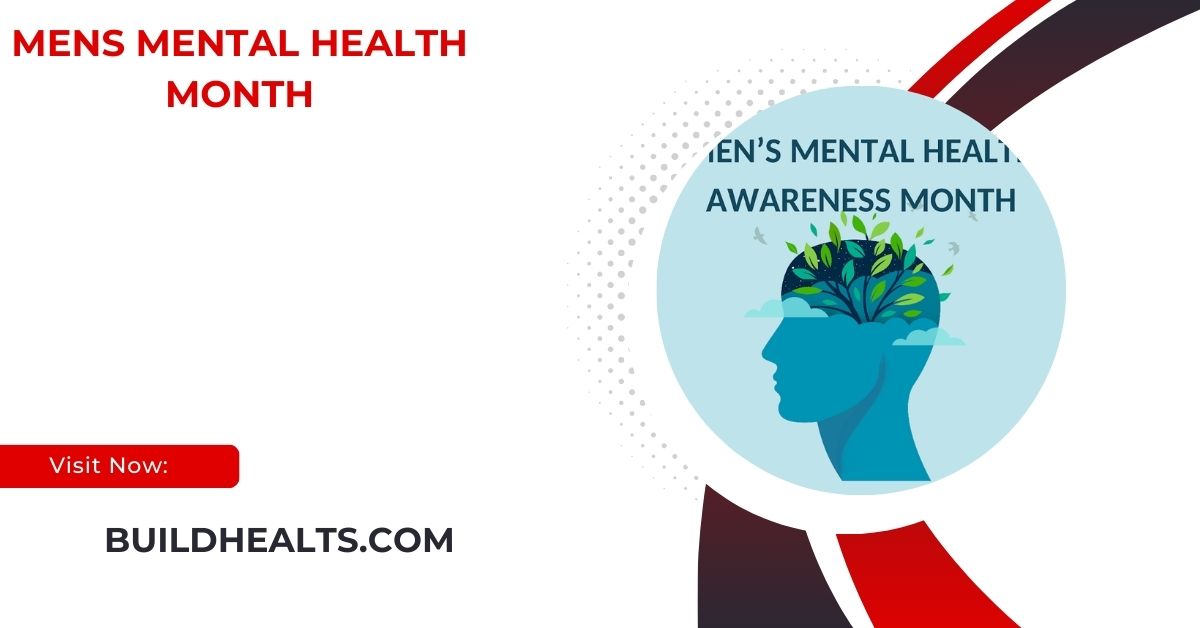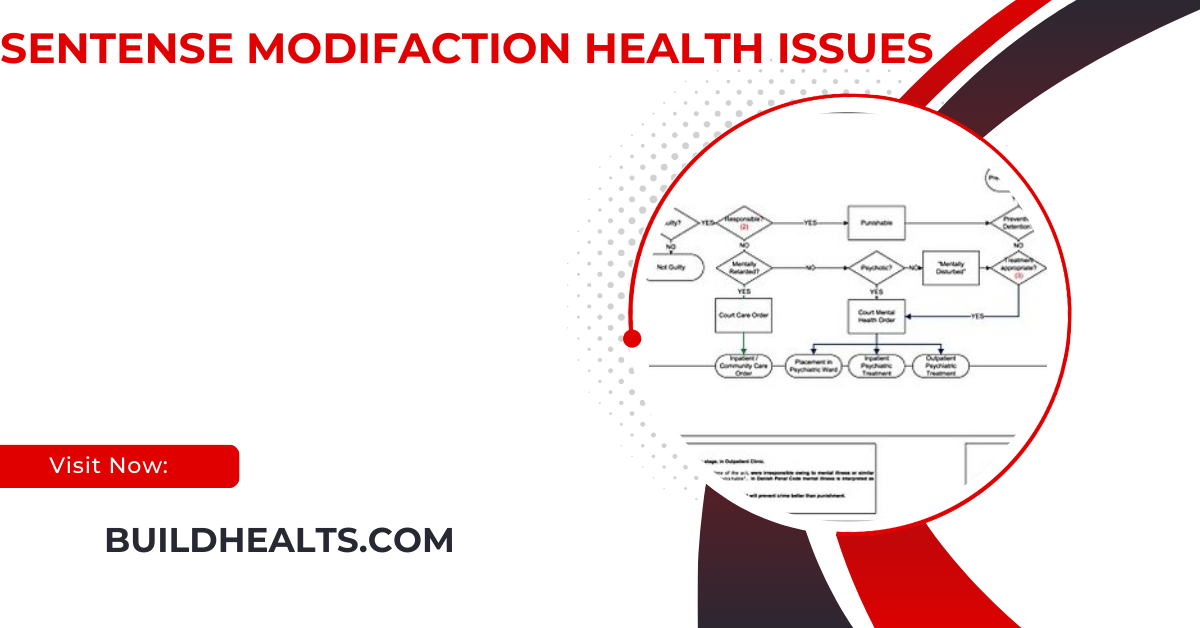Men’s Mental Health Month raises awareness of mental health challenges men face, reduces stigma, and encourages open discussions and support for well-being.
In this article, we will explore what Men’s Mental Health Month is, why it’s important, and how men can take steps to improve their mental well-being.
What is Men’s Mental Health Month?

Men’s Mental Health Month is observed annually to raise awareness about the mental health challenges men face. It aims to reduce the stigma surrounding mental health issues, encourage open discussions, and promote seeking help when needed. The month emphasizes the importance of mental well-being for men, reminding them that mental health is just as important as physical health. It encourages men to take proactive steps in managing their mental health and seeking support when necessary.
Why is Men’s Mental Health Month Important?
Men’s Mental Health Month is important because it challenges societal expectations that discourage men from expressing vulnerability or seeking help. These stereotypes often lead to mental health issues going unaddressed, contributing to higher rates of depression, anxiety, substance abuse, and suicide among men. By raising awareness, the month encourages open conversations, reduces stigma, and supports men in prioritizing their mental health and seeking the help they need.
Mental Health Challenges Faced by Men:
- Depression and Anxiety: Men are just as likely to suffer from depression and anxiety as women, but they may express these emotions differently. While women are more likely to verbalize their feelings, men may show signs of mental health issues through anger, irritability, or reckless behavior.
- Substance Abuse: Men are more likely than women to engage in substance abuse as a form of self-medication for mental health problems. Alcohol and drug abuse often mask deeper emotional issues that are left unaddressed.
- Suicide Rates: Men have a higher suicide rate than women globally. This is a critical issue that needs to be addressed, as many men struggle silently with their emotions and are less likely to reach out for help.
Also read: 5 Fertility Treatments for Couples
The Role of Men’s Mental Health Month:
Men’s Mental Health Month helps in several key ways:
- Raising Awareness: Men’s Mental Health Month raises awareness of men’s unique mental health challenges, encouraging support and understanding, and reminding that mental health matters for everyone.
- Encouraging Conversations: The month promotes open conversations about men’s mental health, helping reduce stigma and normalize discussions on mental health, encouraging men to express vulnerabilities and seek help.
- Providing Resources: It provides a platform for organizations to share mental health resources like counseling, support groups, and educational materials, offering essential help for men’s well-being.
- Promoting Healthy Behaviors: The month emphasizes self-care and emotional health, encouraging men to engage in activities like exercise, meditation, and therapy to promote overall mental well-being.
Societal Expectations and Gender Roles:
Traditional expectations pressure men to be tough and emotionless, which discourages vulnerability. This leads to emotional suppression, negatively affecting mental health. The pressure to conform prevents men from expressing feelings or seeking help, which can worsen emotional distress and create long-term mental health challenges, such as anxiety or depression. Overcoming these societal norms is crucial for men to acknowledge and address their emotional well-being without fear of judgment or weakness.
Reluctance to Seek Help:

Men are often less likely to seek mental health support due to societal stigma and the fear of being perceived as weak. This reluctance can lead to untreated mental health conditions that worsen over time. Men tend to internalize their struggles, avoiding professional help or open conversations. Overcoming this reluctance is vital, as early intervention can help men manage their mental health effectively and prevent more severe issues from developing later.
The Impact of Relationships:
Romantic or familial relationship struggles can deeply impact men’s mental health. Men may hide their emotions to avoid appearing vulnerable or weak, leading to emotional isolation. This lack of communication can worsen mental health issues, such as depression or anxiety. Open conversations and supportive relationships are essential for men to feel connected and reduce the emotional burden. Healthy relationships and emotional expression play a key role in supporting mental well-being.
Physical Health and Mental Health Connection:
Men’s physical and mental health are closely linked. Chronic illness or poor fitness can contribute to mental health struggles like anxiety or depression. Similarly, mental health challenges can lead to physical symptoms such as fatigue or headaches, creating a vicious cycle. Addressing both physical and mental health is crucial for overall well-being. Regular exercise, a balanced diet, and mental health support can help break this cycle and improve quality of life.
Also read: Novant Health Careers – Join A Leading Healthcare Provider!
Breaking the Stigma Around Men’s Mental Health:
A major obstacle to improving men’s mental health is the stigma surrounding it. Many men believe that seeking help for mental health problems makes them weak or less of a man. This harmful belief can prevent men from reaching out for support when they need it most.
How to Break the Stigma:
- Encourage Open Conversations: By encouraging men to talk openly about their mental health, we can normalize these conversations and help reduce the stigma. Public figures and leaders who speak out about their own mental health struggles can also inspire others to do the same.
- Supportive Environments: Creating supportive environments where men feel safe to express their emotions and seek help is essential. This includes workplaces, schools, and communities that promote mental health awareness.
- Redefining Masculinity: Redefining traditional ideas of masculinity can help remove the stigma surrounding men’s mental health. Encouraging men to embrace vulnerability, ask for help, and take care of their mental well-being is crucial in breaking down these barriers.
FAQ’s
1. What is Men’s Mental Health Month?
Men’s Mental Health Month is a time to raise awareness about mental health issues specific to men, reduce stigma, and promote seeking help.
2. Why is Men’s Mental Health Month important?
It’s important because it highlights the mental health struggles men face, encouraging them to express vulnerabilities and seek support without fear of judgment.
3. What challenges do men face regarding mental health?
Men face challenges such as depression, anxiety, substance abuse, and higher suicide rates, often due to societal pressure to suppress emotions.
4. How can men improve their mental health?
Men can improve their mental health by seeking support, talking openly about their feelings, engaging in self-care, and addressing physical health issues.
5. What can be done to break the stigma around men’s mental health?
Encouraging open conversations, creating supportive environments, and redefining masculinity to embrace vulnerability can help reduce the stigma surrounding men’s mental health.
Conclusion
Men’s Mental Health Month is essential in raising awareness about the mental health challenges men face. It helps reduce stigma, encourages open discussions, and motivates men to seek support. By addressing these issues, the month empowers men to overcome societal pressures and take proactive steps toward improving their mental well-being, ultimately fostering healthier and more supportive communities.




